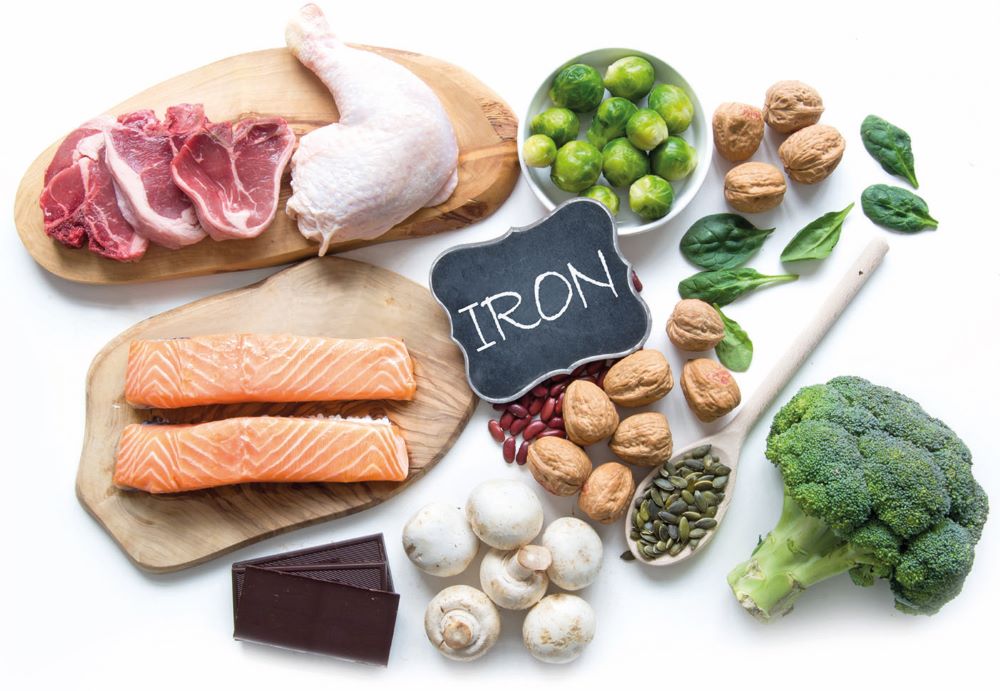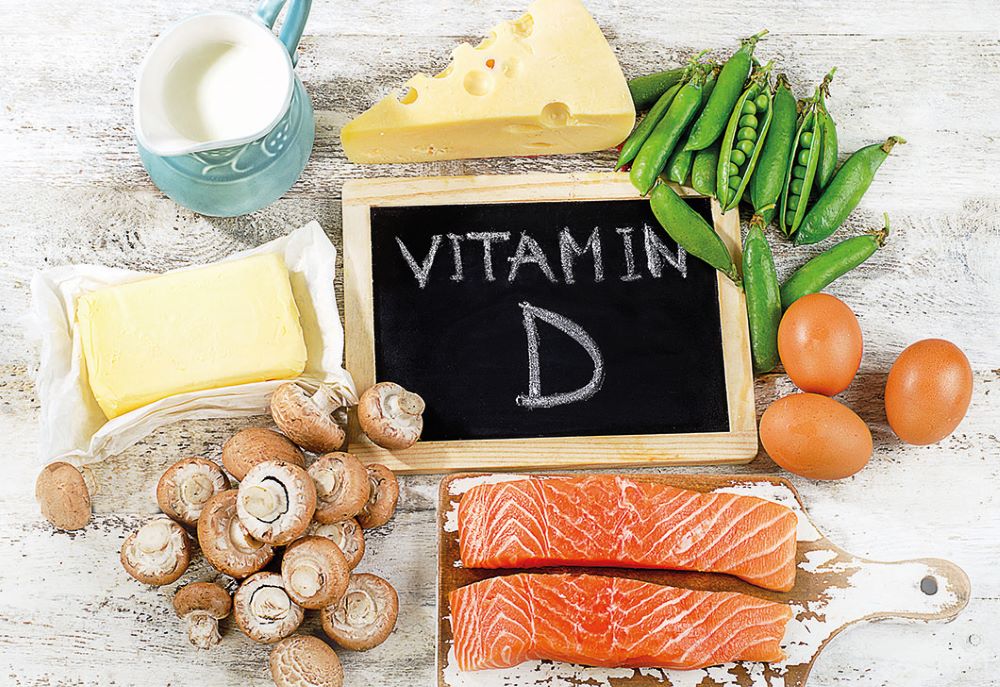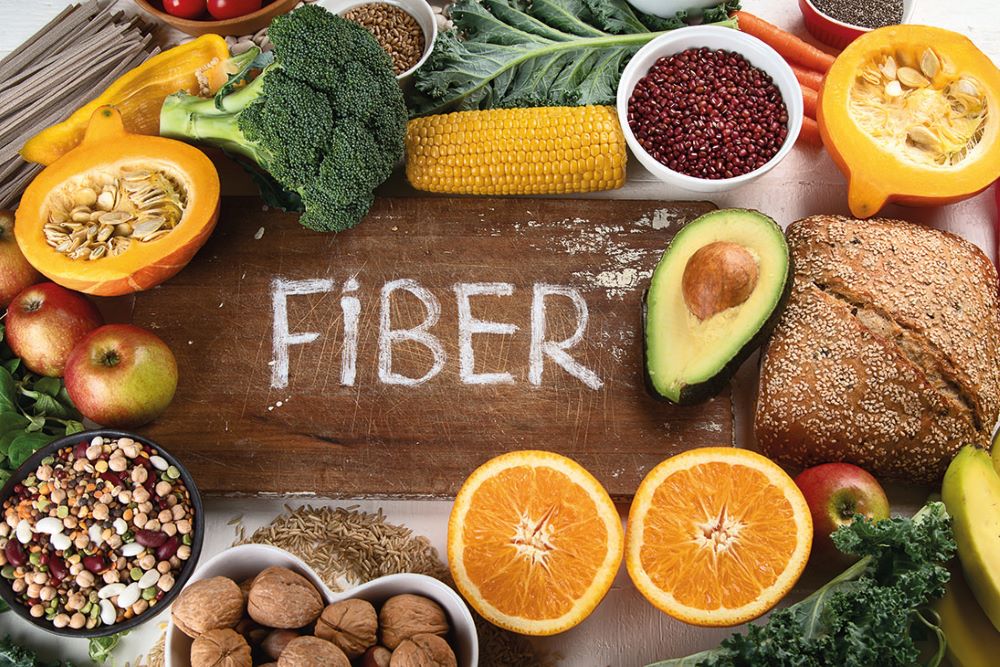Power your brain, improve your memory and prevent dementia with the best foods & nutrients for brain health, including omega-3, flavonoids, fibre and more…
We hear a lot about heart-healthy diets, but did you know what you eat can enhance your brain’s performance, too? From boosting memory and aiding concentration to lowering inflammation, eating smartly will significantly impact how you think and feel during the day.
RELATED: 5 anti-inflammatory foods to beat muscle soreness
‘Eating the correct dietary content ensures that vital neurophysiological processes are optimised,’ says Professor James Goodwin from the Brain Health Network. ‘These include neuroplasticity [the brain’s ability to form new pathways], the establishment and retrieval of memory, learning, processing speed, cognitive performance and mental health.’
Read on to discover the best foods and key nutrients you need to eat to boost your brain health, improve your memory and prevent dementia in the long-run…
Best foods for brain health

Omega-3
Why you need it: There are three types of omega-3 and they’re all essential for the health of your brain. ‘At 40 per cent, DHA (docosahexaenoic acid) is the most abundant in the brain’s cell membranes. The other is EPA (eicosapentaenoic acid). However, the body is not efficient at synthesising DHA, so we’re largely dependent on dietary DHA,’ Goodwin explains.
Where to find it: ‘The best sources for omega-3 rich foods to boost your brain health are cold-water fatty fish (mackerel, salmon, oysters, sardines and anchovies). In plants (alpha-lipoic acid, or ALA, only), try flaxseeds, chia seeds, walnuts and soya beans,’ he advises. ‘Adequate intake is 1.1g/day for women and 1.6g for men.’
What the science says: ‘Adequate dietary amounts of DHA, EPA and ALA are vital for normal brain development, for the maintenance of brain activity and to prevent cognitive decline,’ adds Goodwin. ‘Recent research has shown it is the ratio of omega-3 to omega-6 that is important. It has to be high in favour of omega-3, and, if so, is absolutely anti-inflammatory.’
Related: 10 benefits of omega-3 fatty acids

Iron
Why you need it: ‘Iron helps with brain health through its role in DNA and neurotransmitter synthesis, mitochondrial [energy cell] respiration, and the synthesis of myelin [the sheath that surrounds nerves],’ explains Rob Hobson, Healthspan head of nutrition. ‘Low levels can lead to poor concentration and brain fog.’
Where to find it: Haem iron is found in animal products that contained haemoglobin [a blood protein that binds oxygen]. Liver, mussels, beef and canned sardines have the highest quantities. Good sources of non-haem iron include beans, tofu, dried apricots and sesame seeds.
What the science says: ‘Women are particularly prone to iron deficiency and around 27 per cent do not get enough from their diet,’ warns Hobson. However, if iron accumulates in certain areas of the brain it can lead to oxidative stress and cellular damage, reports Lancet Neurology. Therefore, if taking supplements, stick with the RDA of 14mg.
Related: Vegan diet staples: best protein, iron & calcium sources
Flavonoids
Why you need it: ‘Flavonoids promote increases in brain-derived neurotrophic factor (BDNF), which we believe to be important in preventing dementia,’ says Jeremy Spencer, professor of nutritional biochemistry and medicine at Reading University. ‘The flavonoid epicatechin, for example, induces an acute increase in blood flow to the brain within a few hours, with improvements in both memory and sustained attention.’
Where to find them: Berries and vegetables, tea (especially green), coffee, cocoa, citrus juices are all good sources of flavonoids. Supplements aren’t really necessary. ‘Somewhere between 0.5g and 1g of flavonoids is thought to represent a good intake. This would be achievable by following 5-A-day,’ Spencer confirms.
What the science says: ‘Research shows regular intake of foods containing flavonoids increases blood flow to the hippocampus. This is an area of the brain which degenerates in Alzheimer’s disease and is essential for memory,’ he adds. ‘Loss of blood flow to the hippocampus occurs during “healthy” ageing. Therefore, flavonoids can act to improve memory function in everyone as they get older’.

Vitamin D
Why you need it: Vitamin D is essential for lifelong brain health as it reduces inflammation and oxidative stress. ‘We know vitamin D activates and de-activates enzymes in the brain that are involved in neurotransmitter synthesis and nerve growth,’ explains Goodwin. ‘Plus, studies also suggest it protects neurons.’
Where to find it: ‘Vitamin D2, a precursor of vitamin D3, is abundant in cold-water fatty fish and fish oils, egg yolk, cheese and liver,’ he adds. ‘This means that if you only eat plant-sourced food, vitamin D3 supplements are essential.’
What the science says: ‘Recent research has shown there are receptors for vitamin D throughout the central nervous system and in the hippocampus,’ explains Goodwin. ‘Research at Cambridge University found participants with the lowest vitamin D levels did the worst on mental tests. The “severely deficient” group were more than twice as likely to be cognitively impaired as those in the “optimum” group.’
Related: How to increase your vitamin D levels naturally

Fibre
Why you need it: There’s a direct link between the brain and the gut via the vagus nerve, so looking after your gut properly will also support your brain. health. ‘Our gut microbes need fibre to create beneficial postbiotics, key messengers for our brain,’ says Dr Frederica Amati, chief nutritionist for Indi Supplements. ‘For example, our body makes 80 per cent of its serotonin in the gut. It is then transported to our brain through the vagus nerve.’
Where to find it: Fill up on plants. ‘Eat seasonally, use nuts, seeds, herbs and spices. Also, aim to consume probiotics like kefir, kombucha or sauerkraut every day,’ she adds. ‘You could also try a fibre and polyphenol-rich supplement with probiotics such as Indi Body (£55).’
What the science says: High-fibre diets may reduce brain inflammation by increasing short-chain fatty acids, such as butyrate, which has an anti-inflammatory effect. This means less cognitive decline and lower risk of neurodegenerative illnesses, according to the journal Frontiers in Immunology.
Brahmi (bacopa monnieri)
Why you need it: This ayurvedic nootropic [supplements that enhance brain function and mental performance] is used to improve memory and clarity of thought,’ explains Hobson. ‘It contains 12 unique antioxidants called bacosides that reduce inflammation, protect brain cells from damage and increase cerebral blood flow.’
Where to find it: Take as a supplement.
What the science says: ‘Early research shows Brahmi increases the number and density of dendrites and synapses in the brain leading to improved spatial learning,’ says Hobson. ‘An Australian study also found it significantly improved verbal learning and memory recall after 12 weeks compared to a placebo.’
Try Healthspan Love Your Brain (£19.95 for 28 days).
Words: Eve Boggenpoel | Images: Shutterstock







